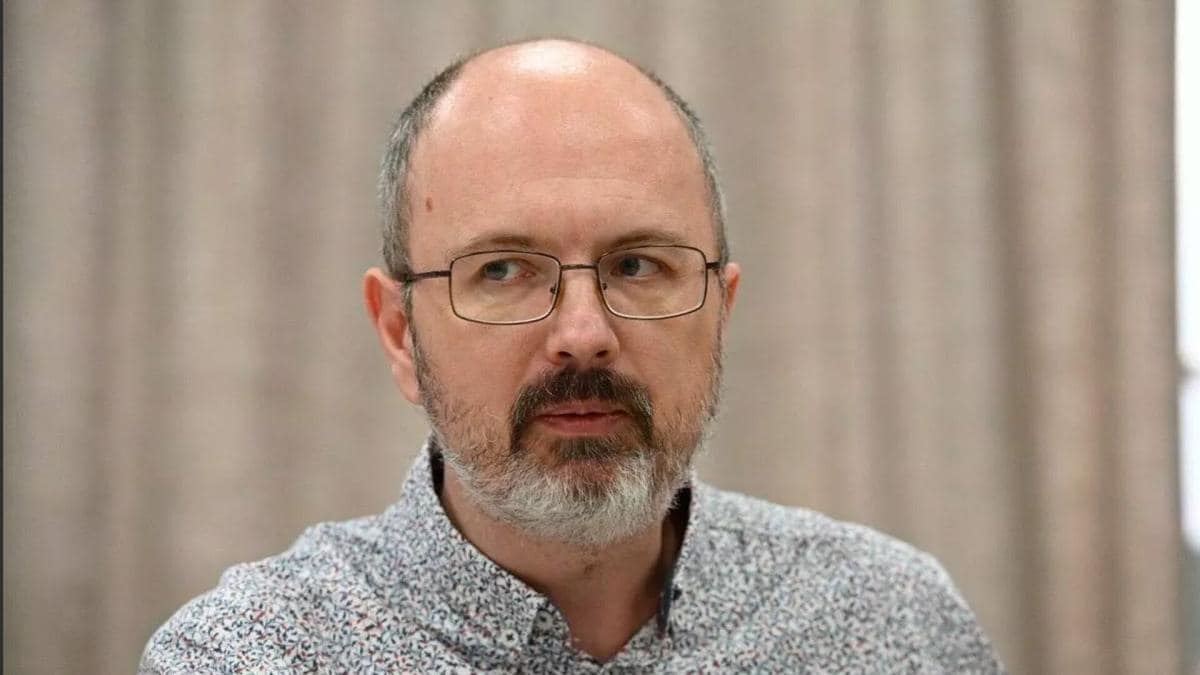As in the case of previous horrific incidents in the war between Russia and Ukraine, both sides were quick to blame each other when the Kakhovskaya hydroelectric power plant was destroyed on June 6, 2023.
Russia's Ambassador to the UN Vassily Nebenzia denounced Kyiv's action: "Kyiv's deliberate sabotage of critical infrastructure is extremely dangerous and could be classified as a war crime or terrorist act. Attacks on facilities containing dangerous forces are expressly prohibited under international humanitarian law, with dams specifically mentioned in Article 56 of the first Additional Protocol to the Geneva Conventions of 1977."[1]
Putin's Press Secretary, Dmitriy Peskov said that Ukraine is responsible for an act of premeditated sabotage: "We officially state: in this case we are clearly talking about premeditated sabotage on the part of the Ukrainian side, which was planned and executed following an order from Kyiv... And the Kyiv regime should bear the entire responsibility for all the consequences."
Russian Foreign Ministry spokeswoman, Maria Zakharova recalled that Nebenzia had previously warned UN Secretary-General Antonio Guterres about Ukraine's plans to destroy the Kakhovka hydropower plant already in October 2022. "A question for the UN Secretary-General: what has been done?" asked Zakharova acidly.[2]
While it was predictable that Russia would blame Ukraine, Russia had to supply an explanation as to why Ukraine would take an action that did grievous damage to its own citizens and to the national economy. Here there was no unanimity, and answers ranged from a hope to secure military advantages, attempts to deflect attention from Ukraine's battlefield failures to claims that Ukrainians are inherently terrorists, like the Islamic State (ISIS) and take pleasure in wanton acts of destruction.
Below is a survey of Russian comments seeking to explain the "Ukrainian" action.

Navigating the flooded streets of the Kherson region following the destruction of the power station. (Source: Rbc.ru)
Ukraine Blew Up The Power Station To Secure Military Advantages
Russia's Defense Minister Sergei Shoigu accused Ukraine of detonating the Kakhovskaya power station, which led to flooding of large areas. According to Shoigu, this act of "sabotage" was performed to prevent Russia from advancing in the Kherson direction in the wake of Ukraine's military failures.[3]
The conservative business daily Vzglyad dissected the presumed Ukrainian rationale: "The expert community believes that Ukraine benefits from this situation [the flooding] for several reasons. First, the ZSU may start blackmailing the Russian Armed Forces with further destruction of the dam, which is typical practice for terrorists. Second, the adversary is one step closer to disrupting Crimea's water supply.
"Third, rising water levels in the Dnipro threaten the coastal defense lines of the Russian Armed Forces. Fourth, such actions create so-called 'administrative friction,' when specialists, the military and officials are forced to deal with the consequences of emergencies rather than with routine work in the SVO area. The fifth and final point, Zelenskyy's office is trying to create a negative internal backdrop for Moscow along an arc from Shebekino in Belgorod Oblast [shelled by Ukrainian troops] to the lower reaches of the Dnipro in the Kherson Oblast."
Some experts specifically named by the paper concurred that there was method to the seeming Ukrainian madness. Vladimir Rogov, chairman of the "We Stand with Russia" movement suggested that the action facilitated the flooding of the Dnipro river by the Armed Forces of Ukraine.
"Substantial damage has been done to the Kakhovskaya HPP's spans. In theory, if the flood level rises even more and the ZSU uses small vessels with small displacement, it will allow them to cross the minefields. Then we face the threat of an enemy landing," argued Rogov.
Alexey Anpilogov, president of "Basis," the Foundation for the Support of Scientific Research and the Development of Civil Initiatives and an expert in the field of nuclear energy, agreed with Rogov: "Overall, the incident plays more into the hands of the enemy than it does into ours. For the Ukrainian side, there are big benefits from the long-term consequences. The reservoir will become shallow in about two days. Then the Armed Forces of Ukraine have an opportunity to more easily force the Dnipro upstream, from the cities of Nikopol and Marganets towards Energodar. The enemy has already made similar attempts, but now, when the reservoir shrinks to the level riverbed, it will be much easier...
"Thus, we can state that the Ukrainian side pursued exclusively military objectives. We know that the Ukrainian side was planning exactly this pattern of counterattack to advance by a waterborne strike on Melitopol."[4]

Aleksey Anpilogov (Source: Ukraina.ru)
The daily Izvestiya, however, cited military experts, who believed the incident conferred no military advantages and perhaps even disadvantaged the Ukrainians more. Military expert Alexey Leonkov told Izvestia: "This will affect the ability to suppress Ukrainian artillery systems and MLRS on the right bank," On the other hand, the high waters preclude assault landings by the adversary.
Another military expert, Vladislav Shurygin, said the flood presents a greater problem for the opposing side: "After the water goes down, large water-logged areas will remain. Possibly, we will have to leave some positions but our defense is layered and it won't critically affect it. We can withdraw temporarily to another line of defense and adjust what's necessary. Of course, some [Russian] minefields will be washed away, but they can be quickly restored"[5]
Vladimir Saldo, the acting governor of Kherson, said that the Ukrainian action was designed to promote food insecurity in the region, but argued the tactic will fail because all of Russia supports the region.[6]
The Ukrainians Are Motivated By Dumb Cruelty, Passion For Destruction; They Are Inherently Terrorists, Like ISIS
RIA Novosti commentator Victoria Nikiforova dispensed with the search for a logical rationale for Ukraine's action. There was no logic behind the action, she said, only frenzied terrorism fueled by Ukrainian jealousy of Russian progress. She wrote:
"Perhaps some cunning military plan lurked in this wild cruelty? Won't blowing up the dam make it easier for the Armed Forces to counteroffensive? No, our left bank of the Dnieper will be flooded and for many months will turn into a viscous swamp – with all the desire to gain a foothold there, it will be impossible for the Vesushniks [a derogatory nickname for the Ukrainian Armed Forces]. Vladimir Saldo, the acting governor of Kherson, has just confirmed that the destruction of the Kakhovskaya hydroelectric power station will in no way prevent our military from defending the left bank.
"No, no, there are no Clausewitzes on the other side. Dumb cruelty and a passion for destruction - that's all what motivated the Kyiv terrorists.
"In a series of terrorist attacks that began the notorious counter-offensive of the Armed Forces of Ukraine, the handwriting of the American and British intelligence services is clearly visible. The terrorists of ISIS, fed by Western specialists, followed exactly the same tracing paper – they blew up dams, bridges, destroyed cultural monuments, destroyed entire cities, as if setting out to wipe out everything that they had not created from the face of the earth. It is for good reason that in the social networks the Ukrainian SSR [Ukrainian Soviet Socialist Republic, when it was part of the USSR] is often referred to as the UGIL [Ukrainian Islamic State].
"In Ukraine, terrorist tactics have worked especially well because envy has become their fuel. Quite early, twenty years ago, the Ukrainians for the most part felt that they were going somewhere in the wrong direction. That Russia had been developing by leaps and bounds, and they themselves remained somewhere in the 90s. It was then that envy of the 'Muscovites' began to degenerate into hatred.
"We were guilty in their eyes, because we lived better. They [the Russians] built luxurious houses, highways, and the Crimean bridge, laid out parks and finished embankments, turned their cities into heaven on earth.
"A characteristic detail: the residents of our Novaya Tavolzhanka [the Russian settlement temporarily occupied in a raid by Ukraine backed Russian insurgents] immediately recognized the video fakes filmed by the Ukronazis allegedly in their city because they don't have such decrepit houses, such shabby walls, such broken pavements. They are separated from their Ukrainian neighbors by several kilometers – and decades of historical progress..."[7]

Victoria Nikiforova (Source: Uz.sputniknews.ru)




